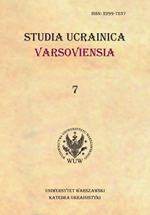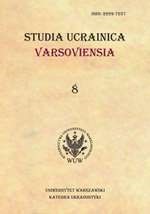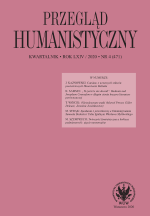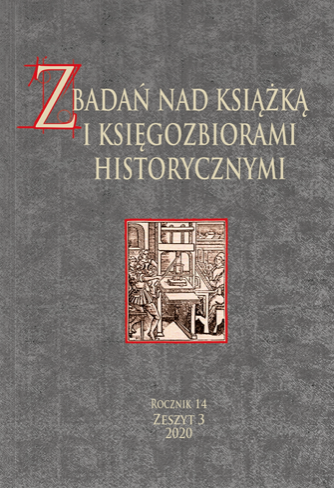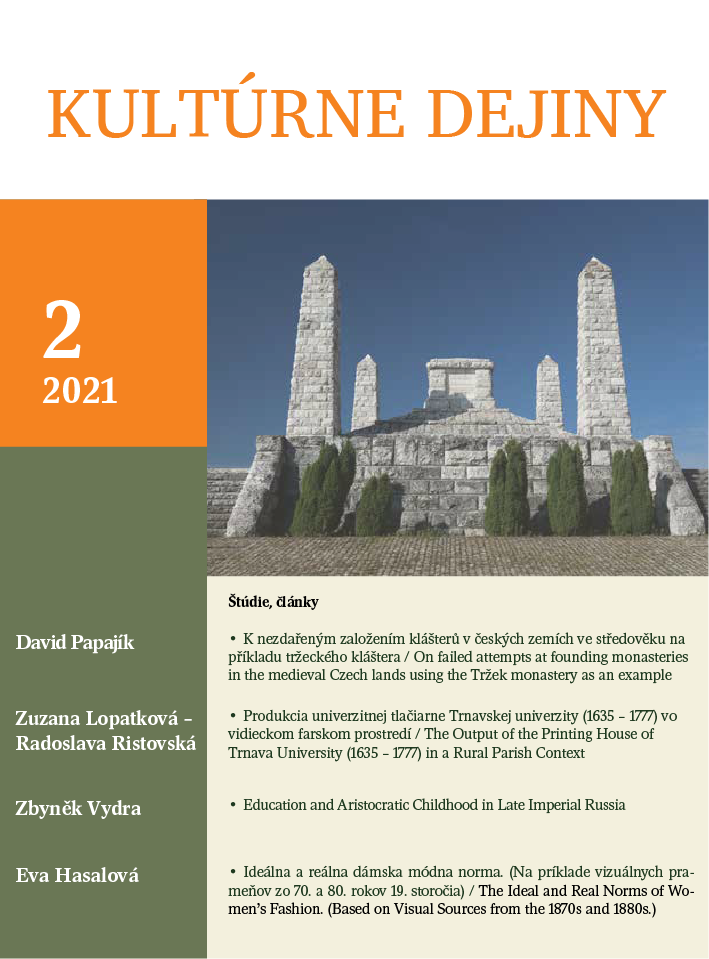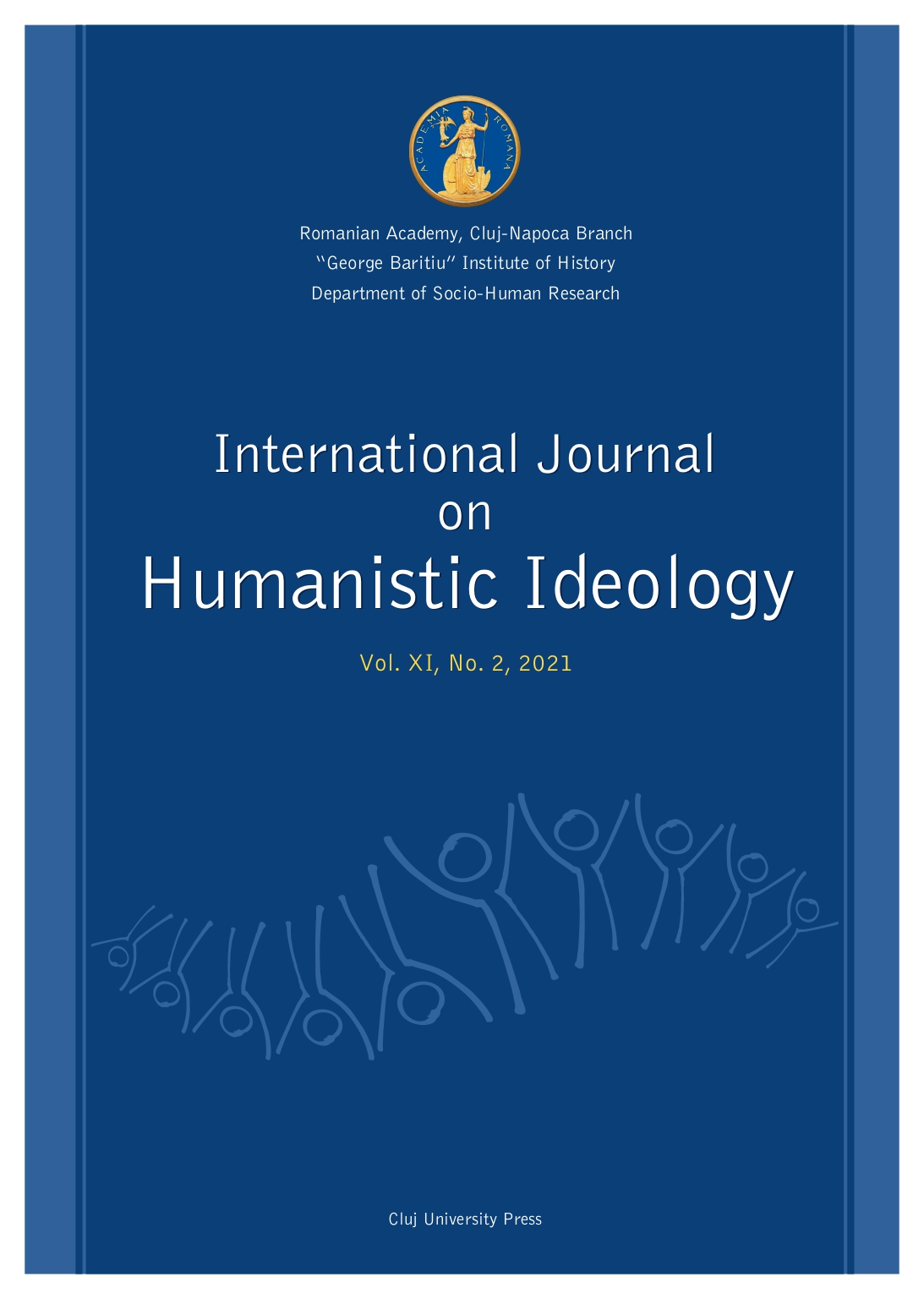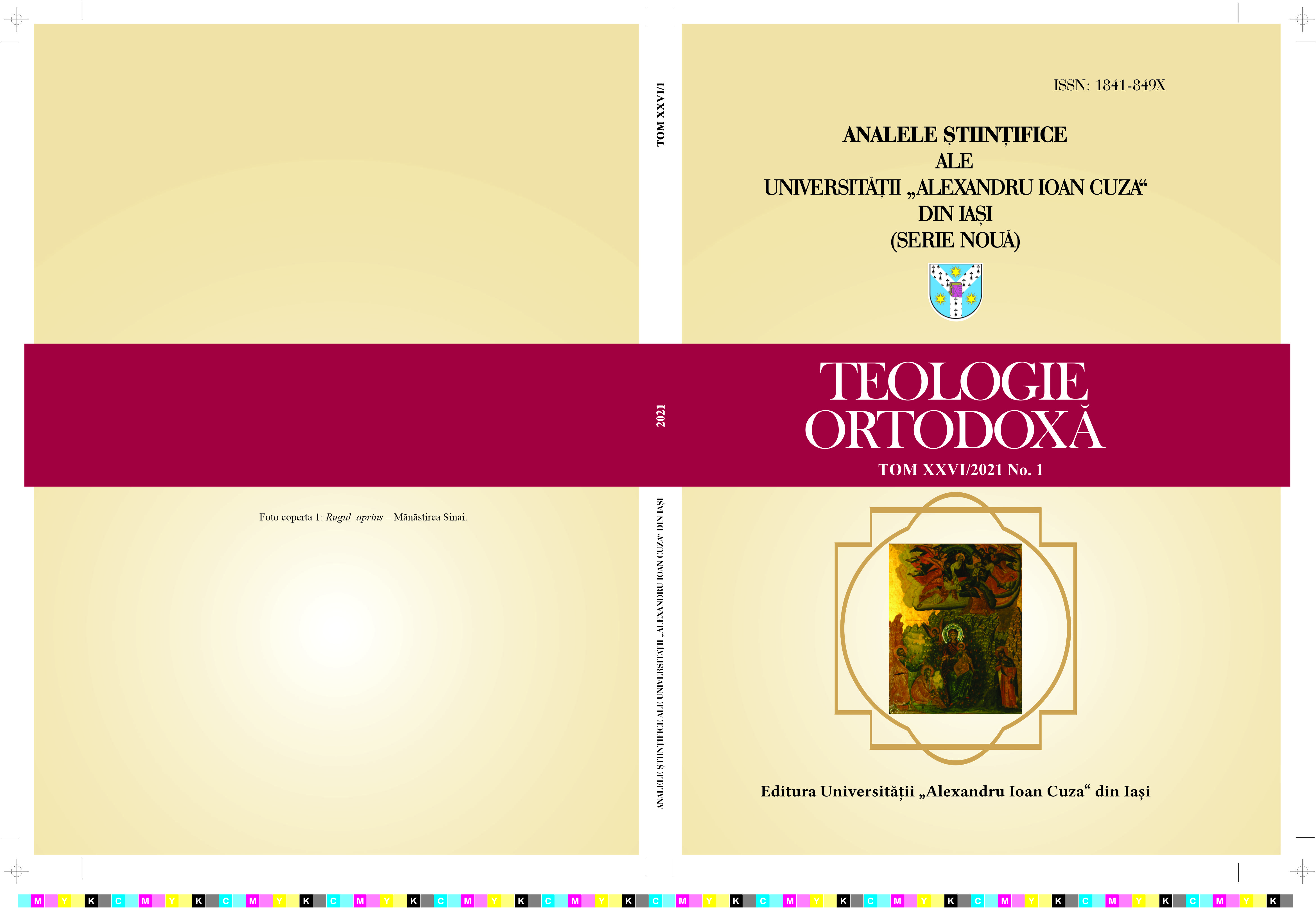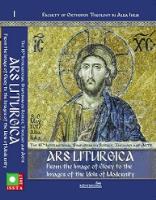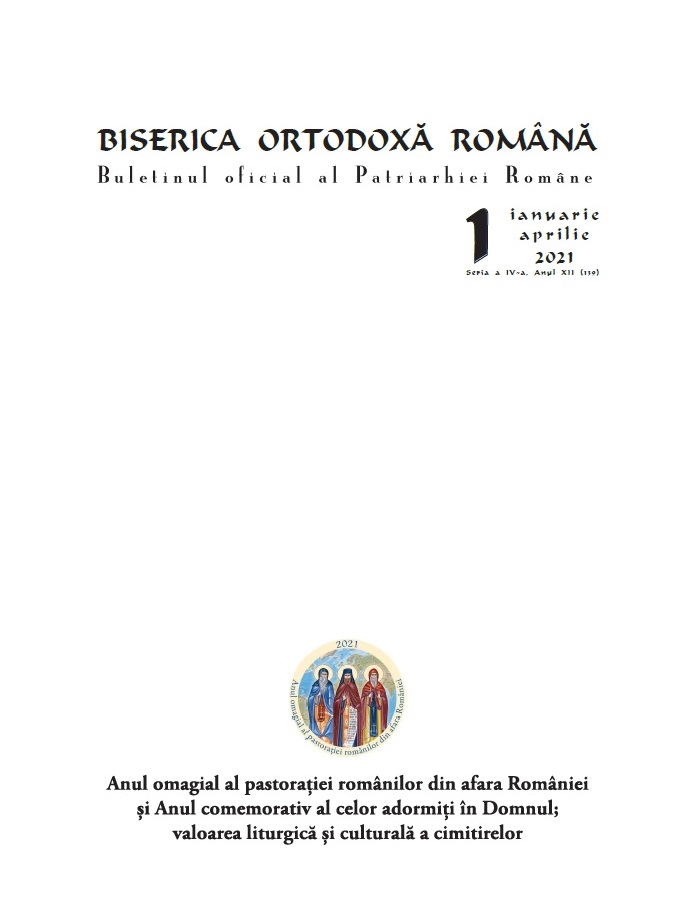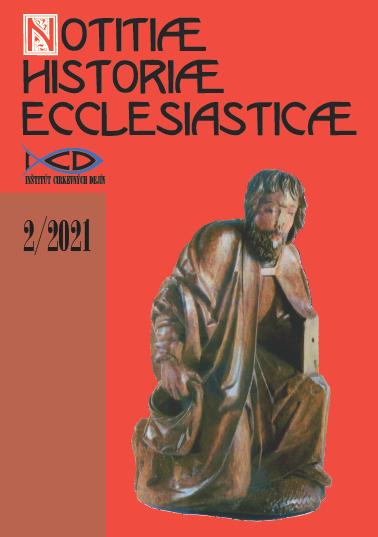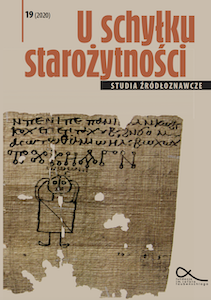Author(s): Constantin Bobulescu / Language(s): Romanian
Issue: 1/2021
The study authored by pr. Constantin Bobulescu addresses an aspect of ourChurch’s tradition concerning funeral practices. We note that some customs are local and take various concrete forms, and date back from pagan times, with the oldRomans and Greeks. They are mentioned in the writings of deacon Paul of Aleppo(the 17th century) and the metropolitan of Moldavia, Dosoftei (the 18th century) or the texts of Dimitrie Cantemir, B.P. Hașdeu, folklorist priest Simion Florea Marian,N. Iorga or Vasile Pârvan.Among the customs or practices related to the procession carrying the deceased to the graveyard, there are the so-called bridges, or stations, mentioned in the oldest liturgical texts printed in our country: the Euchologion of 1713, or theLives of Saints printed by Metropolitan Dosoftei in 1682. They symbolize the tolls through which the soul must pass in order to reach the Kingdom of Heavens, and prayers are uttered in these symbolic places: the threshold of the house or the porch, the gate of the yard, the crossroads, the entrance to the church or to the cemetery, the church’s threshold or the cemetery gate, but especially all bridges crossed by the procession carrying the deceased.Dimitrie Cantemir, Franz Joseph Sulzer, V. A. Urechi, Nicolae Iorga, documented the burials of the 17th century, when it was customary for the families of wealthy persons to hire not only women dirge singers, but also musicians and singers for the funerals.The custom of pouring dust upon the deceased’s body belonged not only to the Greeks, but also to Cumans who, during the Middle Ages, inhabited the territory of our country. It is mentioned both in church writings, such as the Euchologion of 1545, then the writings of Metropolitan Dosoftei, and in the writings of lord Narjotde Toucy (Regent of the Latin Empire of Constantinople between 1228-1231,1238-1239 – under emperor Baldwin II) around 1239, as mentioned by historianJoinville.After the priest sprinkles dust upon the deceased, he also sprinkles crosswise a mix of wine and oil, prepared beforehand, uttering the words of Psalm 50/51:„Purge me with hyssop, and I shall be clean: wash me, and I shall be whiter than snow”. This wine mixed with oil is named apaos or paos; the custom was inherited from the Romans, Pausus being the god of everlasting rest.To conclude, the funerary and burial practices in our country have their origins in the pre-Christian, heathen practices, of the old Greeks and Romans, and later the Cumans, who in the Middle Ages lived on our country’s territory; these practices have been enriched by the church tradition and continue to exist today.
More...
